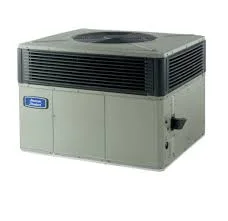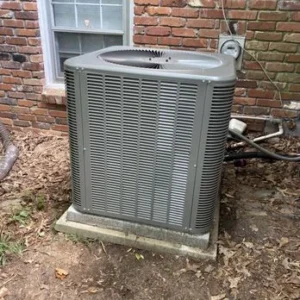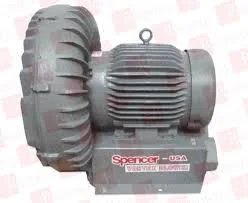Introduction
The HVAC industry is characterized by constant innovation, leading to the discontinuation of older models to make way for more efficient and effective solutions. Among these are the discontinued Spencer HVAC products, which have left a notable mark on the market. In this article, we will explore the reasons behind the discontinuation of these products, their impact on the HVAC landscape, and what consumers can do in response.
The Legacy of Spencer HVAC Products
Spencer has been a significant player in the HVAC market, known for its commitment to quality and innovation. While the company has introduced various cutting-edge products over the years, some older models have been phased out as technology advanced. According to a report by the American Society of Heating, Refrigerating and Air-Conditioning Engineers (ASHRAE), the HVAC industry has seen a shift towards more energy-efficient products, driving manufacturers to discontinue less efficient models.
Popular Discontinued Models
Several Spencer HVAC products have been discontinued, often due to a shift in consumer preferences or regulatory changes. Some notable models include:
- Spencer Air Handling Units (AHUs): These units were known for their durability but were replaced by models that offered higher energy efficiency and lower operational costs.
- Spencer Exhaust Fans: Once a staple in many commercial applications, these fans were discontinued in favor of more modern designs that utilize advanced motor technology for improved performance.
Reasons for Discontinuation
Understanding why specific Spencer HVAC products were discontinued can help consumers make informed decisions when considering alternatives. Here are some key reasons:
1. Advancements in Technology
As HVAC technology has evolved, newer models have incorporated features such as variable speed motors, advanced controls, and improved energy efficiency ratings. According to a study by the U.S. Department of Energy, energy-efficient HVAC systems can reduce energy consumption by up to 30%, prompting manufacturers to phase out older, less efficient models.
2. Regulatory Changes
Regulatory standards for energy efficiency have become more stringent, leading many manufacturers, including Spencer, to discontinue products that do not meet these new requirements. The Energy Policy Act of 2005 set a precedent for energy efficiency in HVAC systems, and compliance is crucial for manufacturers to remain competitive.
3. Changing Market Demand
Consumer preferences have shifted towards more environmentally friendly and cost-effective solutions. A survey by the National Association of Home Builders found that 85% of homebuyers consider energy efficiency a significant factor when purchasing a home, influencing manufacturers to focus on developing newer products.

The Impact of Discontinued Spencer HVAC Products
The discontinuation of certain Spencer HVAC products has several implications for both consumers and the industry:
1. Availability of Replacement Parts
For those who still own discontinued Spencer products, finding replacement parts can be a challenge. Manufacturers often stop producing parts once a product is discontinued, which can lead to increased maintenance costs and downtime. According to a study by HVACR Research, nearly 60% of HVAC technicians report difficulties in sourcing parts for discontinued models.
2. Transition to Newer Technologies
Consumers must transition to newer HVAC technologies, which can involve upfront costs. However, the long-term benefits, such as reduced energy bills and improved comfort, often outweigh these initial investments. A report from the Building Efficiency Initiative states that upgrading to energy-efficient HVAC systems can lead to savings of 20-50% on energy costs.
3. Environmental Considerations
The phase-out of older, less efficient products contributes to environmental sustainability efforts. The U.S. Environmental Protection Agency (EPA) emphasizes the importance of energy-efficient appliances in reducing greenhouse gas emissions, and the discontinuation of outdated models supports this goal.

What Consumers Can Do
If you own a discontinued Spencer HVAC product, there are several steps you can take to ensure continued efficiency and comfort:
1. Explore Retrofit Options
Consider retrofitting your existing unit with modern components that improve efficiency. This can often be more cost-effective than a full replacement while extending the life of your current system.
2. Schedule Regular Maintenance
Regular maintenance is crucial for keeping older systems running smoothly. Hiring a qualified HVAC technician can help you identify potential issues before they become significant problems.
3. Research Replacement Products
If a replacement is necessary, research newer models that meet your efficiency needs and budget. Look for products with high Energy Star ratings, as these are often more reliable and cost-effective in the long run.

Conclusion
The landscape of discontinued Spencer HVAC products reflects the ongoing evolution of the HVAC industry, driven by technological advancements, regulatory changes, and shifting consumer preferences. While the discontinuation of certain models may pose challenges for existing users, it also opens the door to new and improved solutions that enhance efficiency and comfort. As the industry continues to evolve, how will you adapt your HVAC choices to meet modern demands?
FAQs
1. Why were certain Spencer HVAC products discontinued? Discontinued products often result from advancements in technology, regulatory changes, and shifts in consumer demand for more energy-efficient solutions.
2. What should I do if I own a discontinued Spencer product? Consider exploring retrofit options, scheduling regular maintenance, and researching replacement products to ensure continued efficiency.
3. Are replacement parts available for discontinued Spencer models? Availability of replacement parts can be challenging, as manufacturers often stop producing them once a product is discontinued.
4. How can I transition to newer HVAC technology? Research newer models that fit your budget and efficiency needs, and consider consulting with an HVAC professional for recommendations.
5. What are the benefits of upgrading to a newer HVAC system? Upgrading can lead to reduced energy costs, improved comfort, and compliance with environmental regulations.


